A modern educational and research center recognized in Russia and internationally, it combines classical university traditions with modern educational technologies. Since its founding, the university has always kept pace with the times and continually expanded its range of educational programs to meet the country’s demand for engineering personnel, simultaneously improving the quality of specialist training and achieving recognition both in Russia and abroad. RTU MIREA is currently a leader in training highly qualified specialists for rapidly developing knowledge-intensive fields of science and engineering: telecommunications, information and computer technology, automation, cybernetics, radio engineering and electronics, chemistry, and biotechnology.
The University implements a unique “university – base department – base enterprise” training system, which ensures a highly effective educational process and guarantees graduates’ rapid adaptation to the realities of modern production. Today, RTU MIREA includes more than 50 base departments at research institutes of the Russian Academy of Sciences, design bureaus, and high-tech enterprises in the Moscow region. By combining in-depth general scientific theoretical training with practical student work at major industry-forming innovative enterprises employing cutting-edge science-intensive technologies, RTU MIREA guarantees the effective preparation of graduates for the demands of future industrial development.
RTU MIREA has a well-developed network of research centers, scientific laboratories, and student design bureaus.
The University’s faculty includes 21 academicians and corresponding members of the Russian Academy of Sciences, as well as over 280 members of other academies and scientific societies, including international ones. Renowned scientific schools and the internationally recognized achievements of RTU MIREA scientists form the foundation of strong partnerships with universities, research centers, and manufacturing corporations worldwide. More than 2,000 foreign citizens from 86 countries are studying at the University’s Institute of International Education. Faculty and scholarly exchanges with foreign universities have become traditional. Student academic exchange programs, including dual degree programs, are actively developing.
RTU MIREA develops a variety of pre-university training programs and actively engages in career guidance. The University operates an evening physics and mathematics school, which includes over 20 branches of affiliated schools in the Moscow region, as well as preparatory courses.
RTU MIREA is rightfully proud of its strong faculty, modern technical and material resources, active research, and extensive international connections.
MIREA Bachelor’s Programs 2025 :
| Program Code | Program Name | Tuition Fee (RUB) |
|---|---|---|
| 01.03.02 | Applied Mathematics and Informatics – “Mathematical Modeling and Computational Mathematics” | 350,000 |
| Applied Mathematics and Informatics – “System Programming and Computer Technologies” | 370,000 | |
| 01.03.04 | Applied Mathematics – “Data Analysis” | 350,000 |
| 01.03.05 | Statistics – “Business Analytics” | 350,000 |
| 02.03.02 | Fundamental Informatics and Information Technologies – “Artificial Intelligence and Machine Learning” | 350,000 |
| 03.03.02 | Physics – “Medical Physics” | 350,000 |
| 04.03.01 | Chemistry – “Medical and Pharmaceutical Chemistry” | 350,000 |
| Chemistry – “Fundamental and Applied Chemistry” | 350,000 | |
| Chemistry – “Chemistry of Hybrid Polymer Systems” | 350,000 | |
| 05.03.03 | Cartography and Geoinformatics – “Geoinformation Systems and Complexes” | 350,000 |
| 09.03.01 | Informatics and Computer Engineering – “IT Infrastructure” | 380,000 |
| “Digital Complexes, Systems and Networks” | 380,000 | |
| “Intelligent Control Systems and Information Processing” | 380,000 | |
| “Cyber‑Physical Systems” | 380,000 | |
| “Industrial Informatics” | 380,000 | |
| “AI Technologies in Healthcare” | 380,000 | |
| 09.03.02 | Information Systems and Technologies – “Embedded Systems Hardware Programming” | 350,000 |
| “Software Solution Security” | 380,000 | |
| “Cross‑Platform Business Application Development” | 380,000 | |
| “Virtual Space Technologies” | 380,000 | |
| “AI Technologies and Data Analysis” | 380,000 | |
| “Full‑Cycle Software Development” | 380,000 | |
| 09.03.03 | Applied Informatics – “Organization Informatization” | 380,000 |
| “Data Management” | 380,000 | |
| “Digital Transformation” | 380,000 | |
| 09.03.04 | Software Engineering – “IT in Nuclear Industry” | 399,000 |
| “Computer Game and Multimedia Application Design” | 418,000 | |
| “Enterprise Resource Management Systems” | 399,000 |
The main areas of work of the laboratory
The laboratory is engaged in research into the practical application of augmented (virtual, augmented, and mixed) reality technologies in production, design, education, research, and creative activities.
Skills acquired while working in a laboratory
During their studies, students gain knowledge, skills, and abilities in developing augmented reality environments and applications.
The lab is open to all undergraduate, graduate, and postgraduate students of the Institute of Information Technology studying in the following fields: Applied Mathematics, Computer Science and Engineering, Applied Informatics, and Software Engineering.
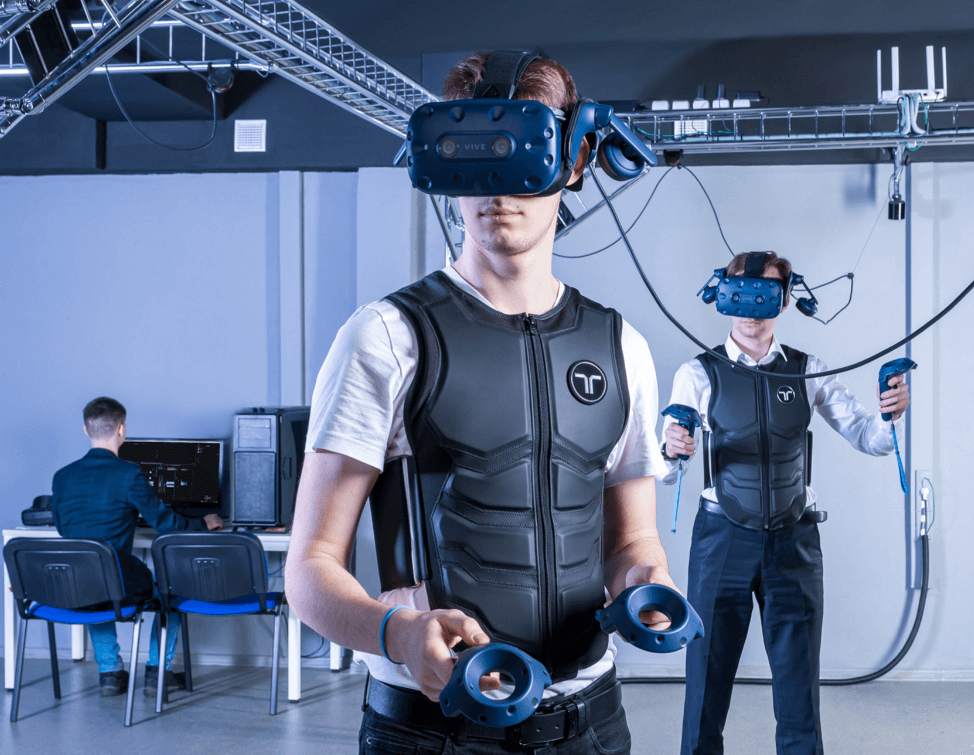
Study in Russia – We’ll guide you step by step :
Laboratory equipment
- Virtual reality devices OculusQuest, HTC Vive Pro Eye, HTC ViveCosmos.
- Augmented reality devices EpsonMoverio BT-300, EpsonMoverioPro BT-2200, ODG R-7.
- MagicLeapOne and Microsoft HoloLens 2 mixed reality devices.
- Zotac VR Go 2.0 backpack-style portable computers.
- TACTOT tactile suits with arm and leg armor.
- A stand for simultaneous work of up to four operators.
The existing equipment allows one or more operators to be immersed in any mixed reality environment, realizing their visual perception and recreating physical sensations through impact on the body and limbs.
Mobile Robotics Training Lab with Advanced AI-Powered Navigation Systems
The Institute of Artificial Intelligence operates a Mobile Robotics training laboratory, designed to teach students the basics of programming mobile robots using the Robotic Operating System (ROS) tools. The lab includes 12 workstations equipped with everything necessary for programming and servicing mobile robots. The core of the lab’s fleet consists of 30 JetBot robots additionally equipped with laser rangefinders, RealSense depth cameras, and MarvelMind precision ultrasonic navigation systems. For the convenience of students and faculty, a testing ground covering over 20 square meters is located in the center of the laboratory. This allows for practicing all typical tasks, such as remote control, route navigation, obstacle avoidance, and group control algorithms, including those based on artificial intelligence. In addition, the testing ground is equipped with a system of video cameras and projectors that allow augmented reality elements to be projected onto the surface on which the robots move.
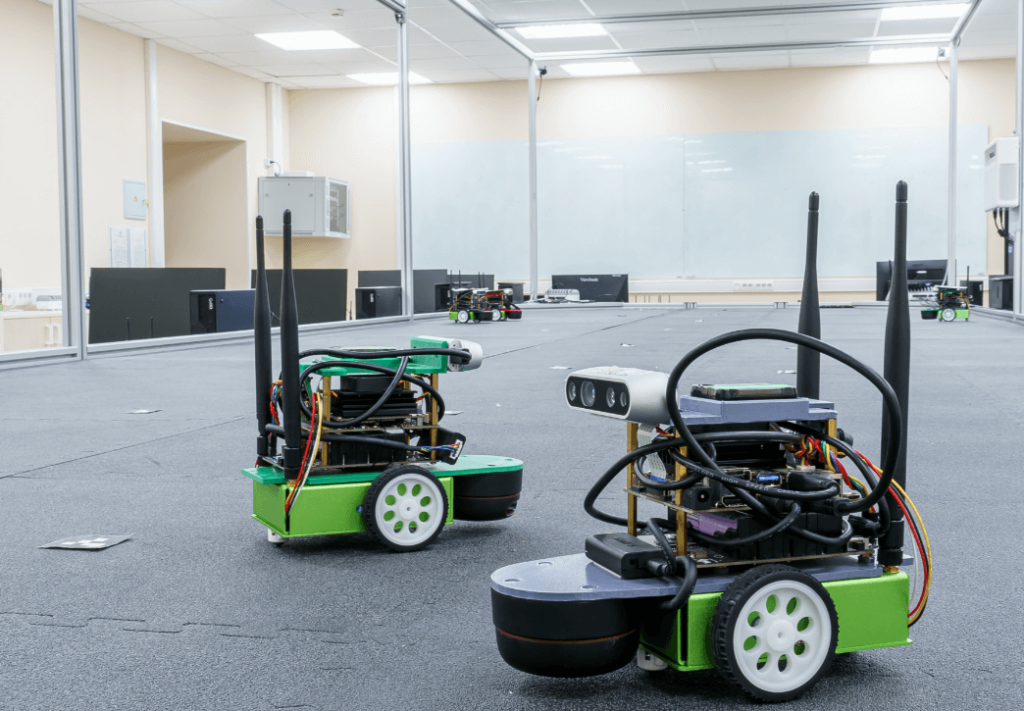
Dormitory No. 1
Located at 86 Vernadskogo Prospekt, Building 1, Moscow (nearest metro station: Yugo-Zapadnaya).
The dormitory’s living area is 8,359.6 m².
The total number of beds in the dormitory is 1,398.
The dormitory is a 14-story panel building.
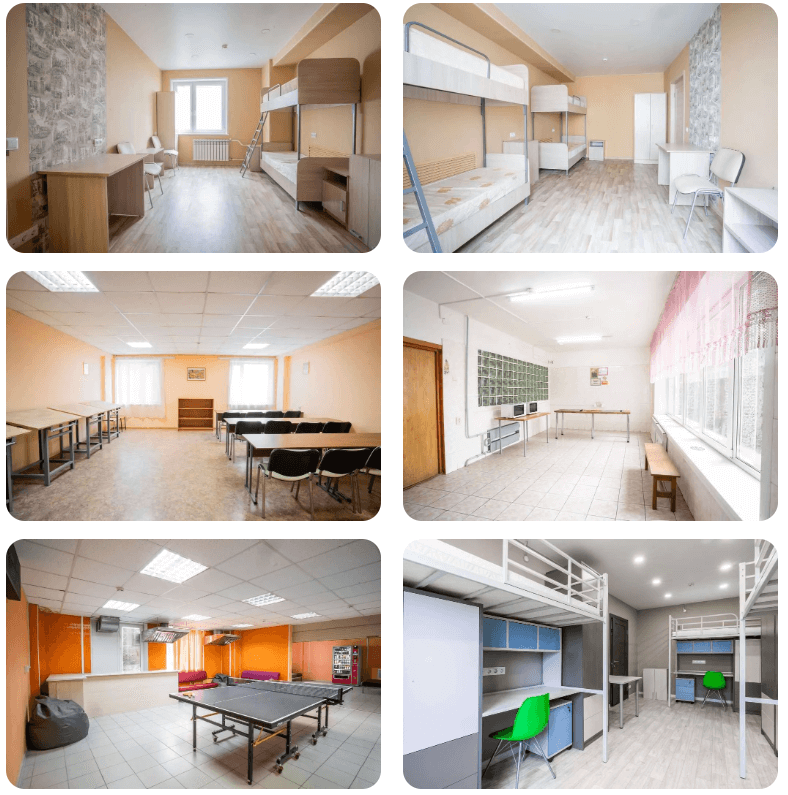
A block-type dormitory – separate rooms located in blocks (2 rooms each) with a separate bathroom and shower. A kitchen is on the floor. The
dormitory is equipped with a video surveillance system and a fire alarm.
Each room has: a wardrobe (per room); a bed (per resident); a nightstand (per resident); a shelf (per resident); a desk (per room); a chair (per resident); 220V sockets; bedding (per resident): a mattress, a pillow, a blanket, a bedspread, and a set of bed linen.
The dormitory has a self-study room, a bike rack, a drawing room, a library, a dance room, an Internet connection, a laundry room, and a ping-pong table.
Dormitory No. 2
Located at 12 Michurinsky Prospekt, Building 2, Moscow (nearest metro station: Lomonosovsky Prospekt).
The dormitory’s living area is 2,374.3 m².
The total number of beds in the dormitory is 280.
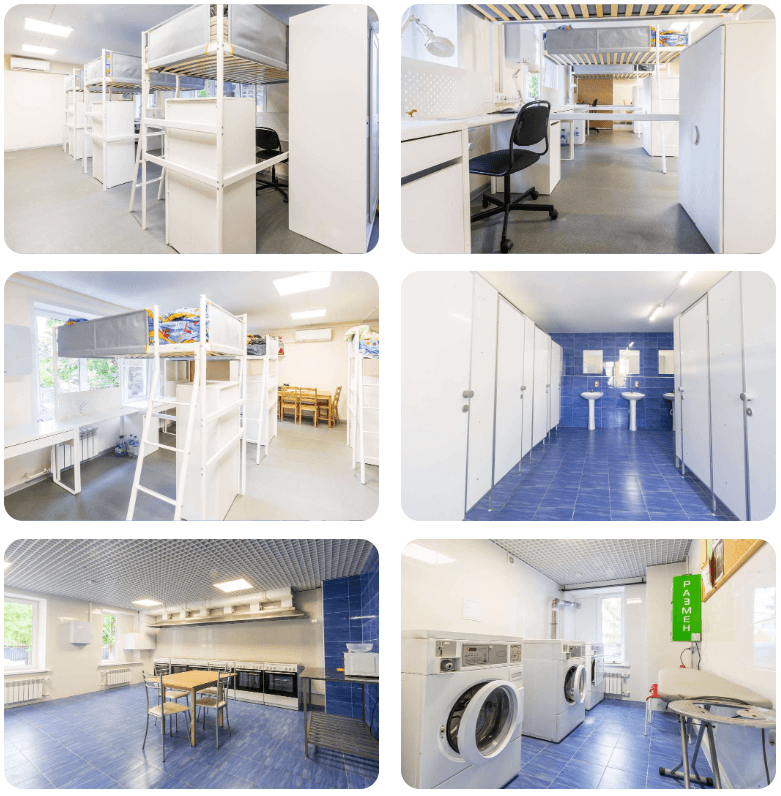
The mixed-use dormitory offers separate rooms, each located in a flat-style apartment with a private bathroom, shower, and kitchen on the ground floor.
The dormitory is equipped with a video surveillance system and a fire alarm.
Each room includes: a wardrobe (per room); a bed (per resident); a nightstand (per resident); a desk (per room); 220V sockets; bedding (per resident): a mattress, pillow, blanket, and bed linen.
The dormitory also has a storage room, laundry room, ironing room, and internet access.
Educational and Scientific Center “Elastomers. Thermoplastics. Technologies”
The F.F. Koshelev Department of Chemistry and Elastomer Processing Technology is one of the leading departments in Russia in training unique specialists in the chemistry and technology of elastomer processing for the domestic industry.
Elastomeric materials are used in all industries (space, defense, chemical, petrochemical, electric power, light industry, food, medical, agricultural, woodworking, construction, paints and varnishes, and others). Specialists are engaged in scientific research in the fields of synthesis, physics, chemistry, and processing technology of elastomeric materials, as well as the design and modeling of elastomeric products.
The “Elastomers. Thermoplastics. Technologies” mega-laboratory, established within the F.F. Koshelev Department of Chemistry and Elastomer Processing Technology, boasts the necessary high-end laboratory and production equipment to support a pilot production facility and research into a wide range of properties of various polymeric materials.
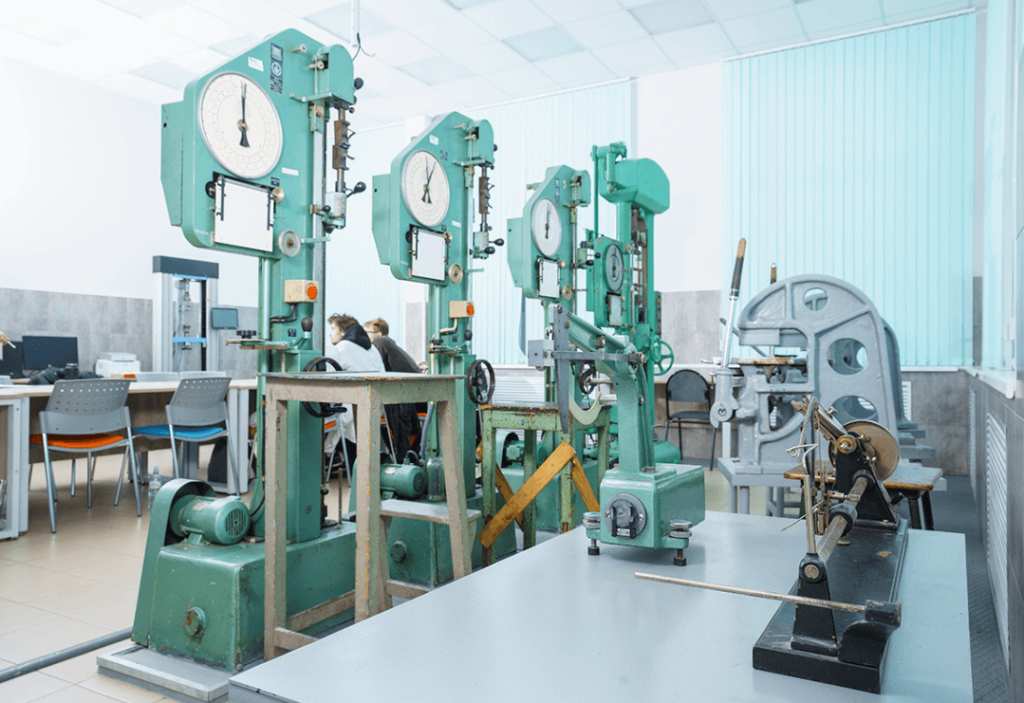
Mirea Address:
пр. Вернадского, 78, Moscow, Russia, 119454
Our services include:
- Registration at MIREA
- Airport transfer
- SIM card purchase
- Bank account opening
- Hotel booking
- Dormitory reservation
- City tour
WhatsApp Number: +7977102-72-61
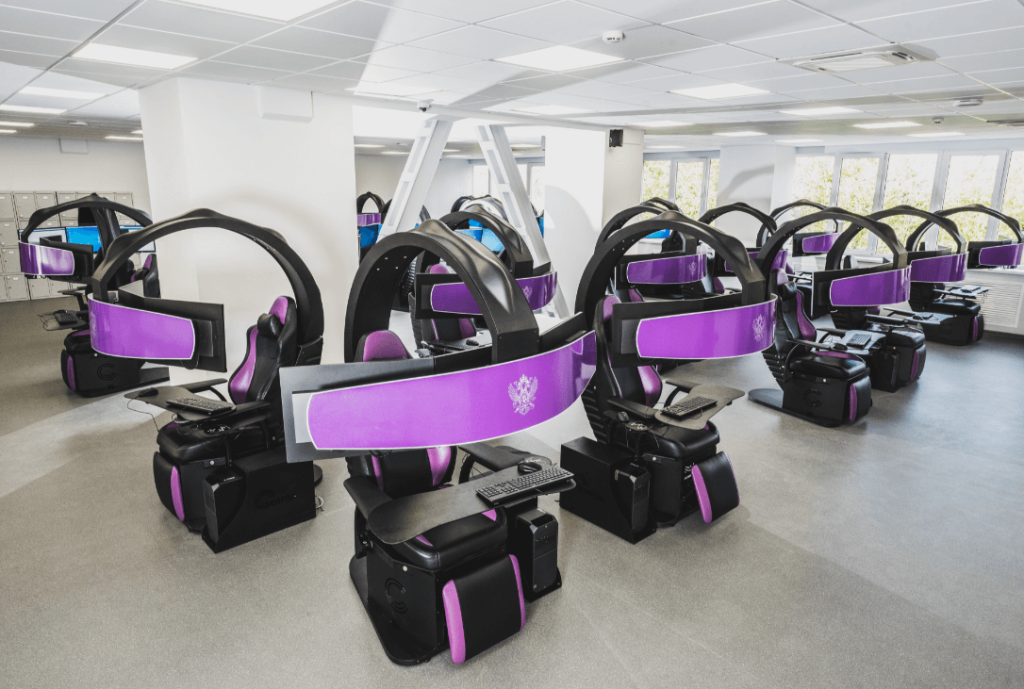
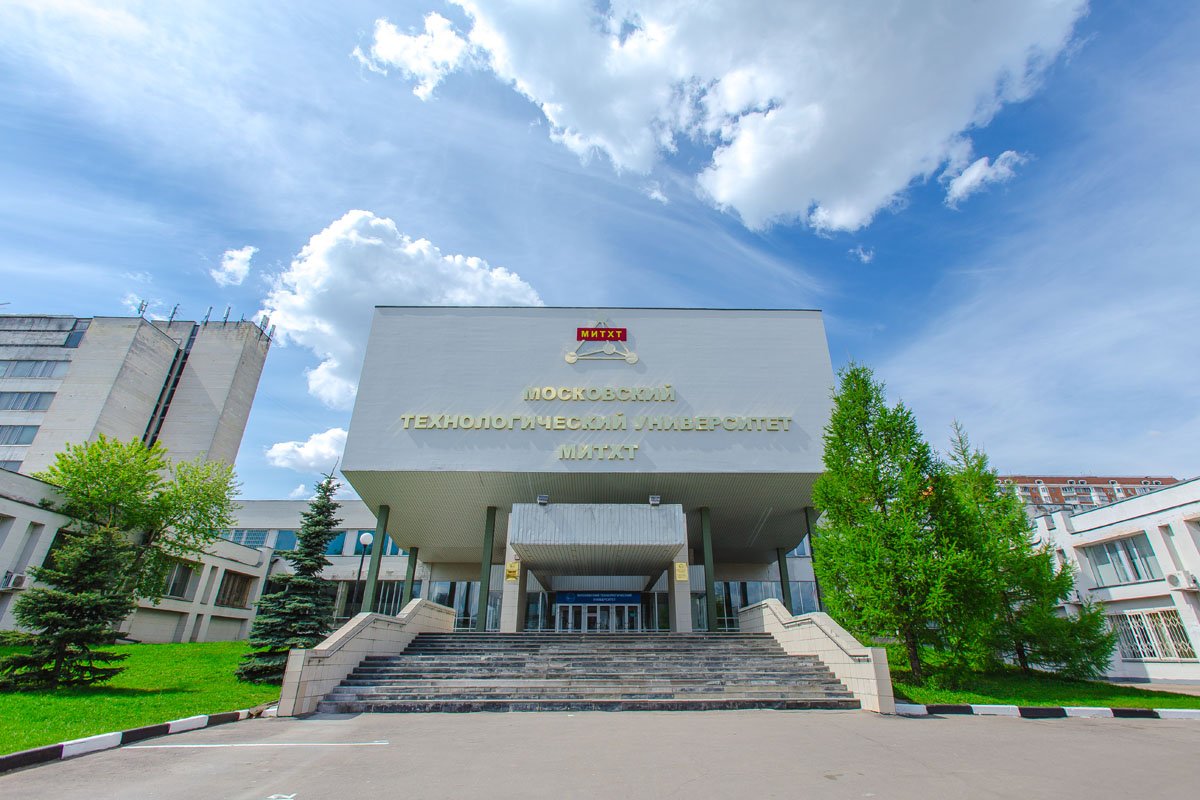
Leave a Reply